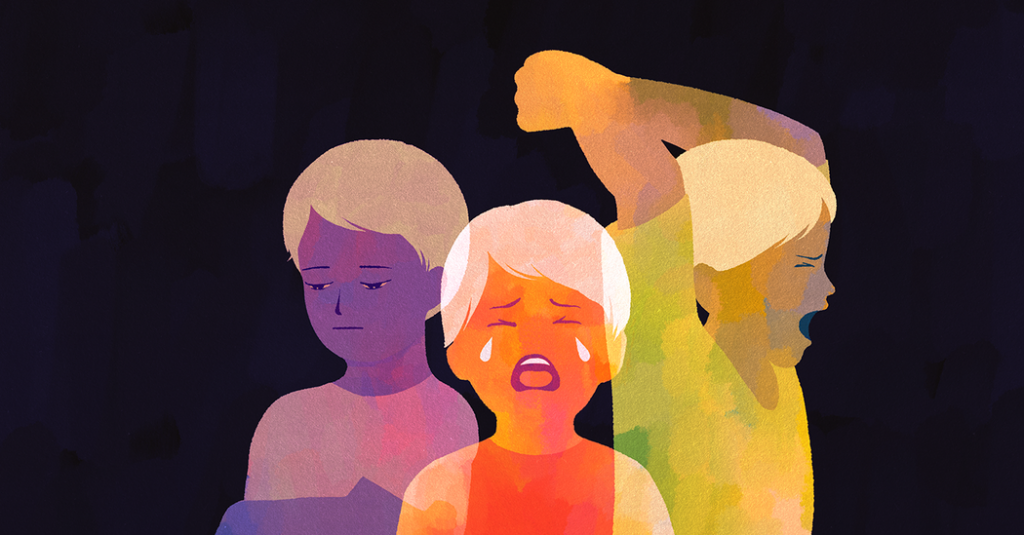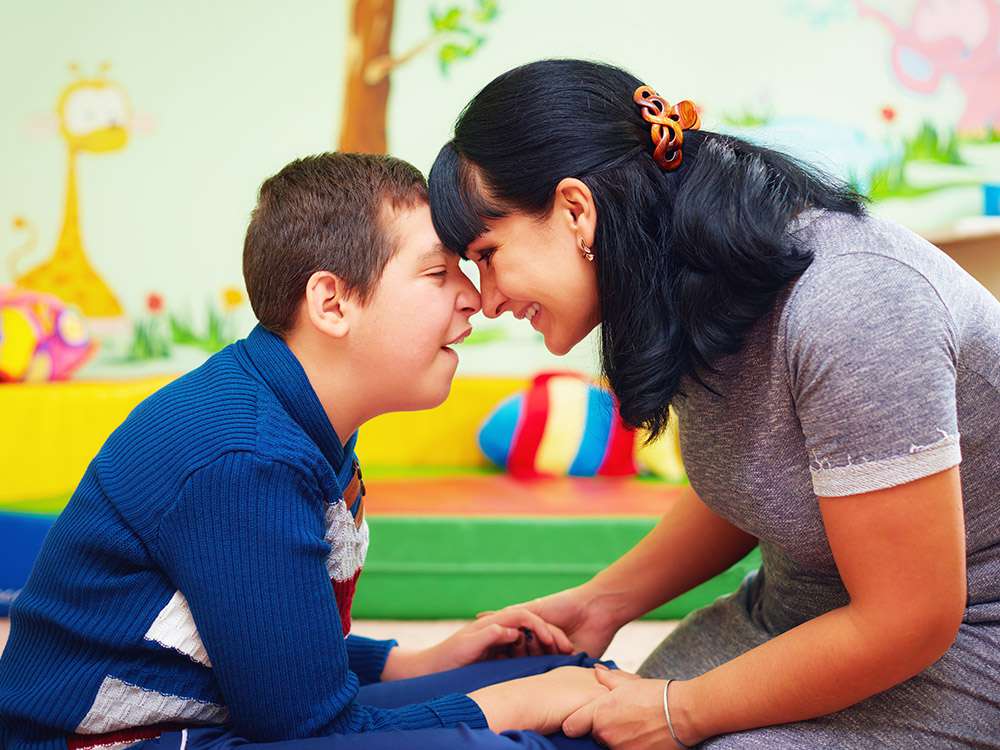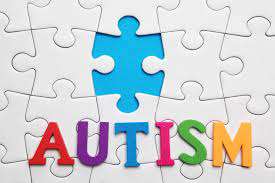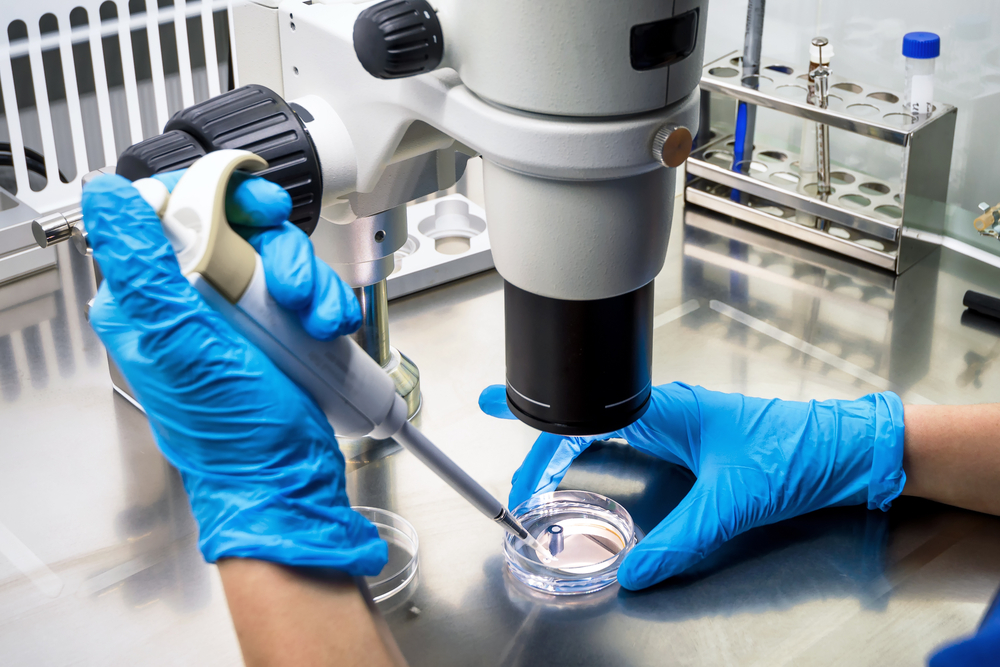Stem Cell Therapy and Treating Autism in Kids: What are the Benefits?
Autism is a developmental disorder that affects the way people communicate and interact. There is no cure for autism, but it can be managed with behavioral therapy and medication. Researchers are now looking into how mesenchymal stem cells might help treat children with autism. These stem cells have been found to improve symptoms of the disease in animal models of autism, so more research needs to be done before they could be used on humans.

Even though autism is a relatively new disease, the condition affects millions of children in the United States. One in 54 children in the United States is diagnosed with autism spectrum disorder each year. This is an increase of 10% from 2014 when the rate was one in 59 children. There are likely multiple reasons for this increase.
The medical community is much better at diagnosing ASD and the definition of autism has expanded greatly over the years. Children with ASD can suffer from a lower quality of life and can suffer from various symptoms, such as insomnia and inflammatory bowel disease.
Treating ASD is difficult and the medical community is rapidly working on developing new treatments for this condition. Stem cell therapy is a promising treatment method that may help treat some of the underlying causes of autism spectrum disorder.
What Causes Autism?
The debate on the underlying causes of autism is still heated. Understanding the exact pathways and causes of the condition can help the medical community treat ASD. There is evidence that multiple pathways are responsible for the development of autism. Immune dysregulation, gastrointestinal inflammation, malfunction of the autonomic nervous system, and gut flora alterations all may contribute to brain neuroinflammation and dysfunction.
Similar to other brain-related disorders, inflammation may play a key role in the development of the condition. Further understanding why inflammation is a key cause of ASD will help develop treatments for the condition. Some researchers believe that stem cells can play a role in the treatment of autism spectrum disorder.
How do Doctors Diagnose Kids with Autism?
The doctor should see to it that your kid has developmental delays in his regular checkups. If the autism spectrum is showing symptoms, you will likely get a referral from another autism spectrum disorder professional. As autism spectrum disorders evolve their symptoms can change significantly in severity and it is difficult to diagnose them. There is neither any particular medical condition to determine the disorder; instead, a specialist can perform a diagnostic examination in a pediatrician or child psychiatrist, or psychologist for a. It’s a disorder and the severity and causes vary – but i.a. I think of it as a disorder.
How Stem Cell Therapy Can Help Treat Autism
Researchers are actively looking into utilizing stem cell therapy to treat patients with ASD. A number of autism treatments, trials, and studies are looking into how stem cells can react with various systems throughout the body to treat autism. Stem cells have a number of intrinsic properties that may be able to help patients with autism.
Inflammation appears to be one of the main triggers of autism spectrum disorder. If the medical community can treat the underlying inflammation, there is a chance that autism symptoms will go away with the inflammation. Stem cells have the ability to communicate with the immune system to reduce inflammation throughout the body.
Stem cells release anti-inflammatory factors that can help reduce brain inflammation. The T lymphocytes and B lymphocytes can be modulated by the proliferation and differentiation of stem cells. This should help prevent further brain neuroinflammation.
More research needs to be completed before stem cell therapy can be concluded as a viable treatment option for children with autism. The future is looking hopeful for parents and their children with an autism spectrum disorder. Stem cells may be able to help reduce inflammation and related autism symptoms.
Alternative medicine
Some treatments have limited or nebulous evidence of their effectiveness. It is possible to encourage negative behaviors by using unintentionally. Other remedies might also be potentially dangerous. Talk to your doctor about a therapy that your child has. Despite claims that some complementary and alternative therapies are harmless, it has not been shown that it is beneficial. Sometimes treatments offer certain benefits in conjunction with evidence-based treatments. The others could also require substantial financial expenses and maybe a challenge to implementation. Some treatments for autism spectrum disorder are not advised. They include alternative treatments that are not prescribed in autism.
Sleep and Autism in Children
Sleep is an essential activity that every person needs every night. A good night of rest can restore the body and mind. However, some patients have various sleep disorders that can interrupt a peaceful night of sleep or prevent them from getting to sleep. Children who are diagnosed with autism often are also diagnosed with various sleep disorders.
Sleep disorders are extremely common in children with autism spectrum disorders. Studies indicate that between 50% and 80% of children with ASD experience sleep problems. Sleep is essential for proper development in children. Losing sleep due to autism can exacerbate other autism symptoms, such as irritability, learning problems, and hyperactivity. Caretakers can also suffer and lose out on sleep when their children are having sleep issues.
The lack of medical treatments for sleep disorders is apparent. Stem cell therapy could help children with sleep disorders achieve a full night of sleep.
Childhood Autism and Sleep Disorders
Patients with autism can suffer from a number of sleep disorders. The most common sleep disorders that children experience are sleep apnea and insomnia. The medical community does not fully understand why autism can cause various sleep disorders. One theory is that the circadian rhythm of the patient does not work properly.
Sleep is essential for the body to function properly. Researchers at Stanford University found that 4 hours of sleep deprivation worsened the ability of stem cells to migrate by 50%. This could be a reason that the lack of sleep aggravates other autism spectrum disorder symptoms. The stem cells in the brain may not be able to divide without sleep.
Whatever reason a patient with autism has sleep issues, treating these issues can be difficult. Stem cell therapy could improve the outcome of patients with autism who are struggling with various sleep disorders.
Stem Cell Therapy For Autism Sleep Disorders
Researchers are hopeful that stem cell therapy could be the treatment for a variety of sleep-related conditions. The medical community is actively looking into stem cell therapy for both sleep apnea and insomnia. Stem cells have regenerative properties that enable the body to heal and repair various tissues throughout the body.
Obstructive sleep apnea could be treated effectively by stem cell therapy. The airway in the throat collapses when a patient suffers from obstructive sleep apnea. Stem cells could prevent this from occurring. The structural supporting muscles in the back of the throat can be repaired through stem cell therapy. An injection or IV of stem cells can be used to treat this condition.
Stem cells also have anti-inflammatory properties. This could reduce the inflammation in the throat muscles and airway. Insomnia is also associated with inflammation. When a patient suffers from insomnia the level of inflammation can increase further, which only makes the problem worse. Stem cell therapy could be used to reduce inflammation in the brain and airways of the body to help the patient get a good night of rest.
Depression is a Real Issue with Autistic Kids:
Children with autism deal with a number of complications, such as depression. The prevalence of depression in children with autism varies widely, with some studies showing that 10% are affected, while another study showed that 72% of children with autism are affected. Regardless of the actual number, children with autism spectrum disorder are more likely to develop depression.
The quality of life of children with depression can be greatly impacted. They may have more difficulty socializing and living a happy, fulfilling life. Diagnosing children who have ASD with depression can be difficult, as many of the symptoms overlap. Stem cell therapy could be a potential treatment option for children with ASD who are suffering from depression.
Childhood Autism and Depression
Depression and anxiety rates for children and teenagers have increased in the past decade. As the medical community has become more adept at diagnosing depression, children with autism are more likely to be diagnosed now more than ever.
Understanding why children with autism are more likely to develop depression is a difficult task. It may have something to do with the stem cells that are found in the brain. There is a reservoir of stem cells found in the hippocampus, which is part of the brain that is in charge of learning, memory, information processing, and mood regulation.
Some researchers believe that autism can cause these stem cells in the brain to divide less and cause many of the symptoms associated with the condition, such as depression. The stem cells cause the brain to make more neurons and create pathways throughout the brain. Fewer neurons can create an environment where a patient is more likely to develop depression
Depression medication can stimulate these stem cells to divide more and create more neurons, but there are patients who are resistant to medication. Stem cell therapy could help children with autism create more stem cells and neurons in their brains.
Medication
There is no pharmaceutical remedy for ASD and no therapy for it. Sometimes medicines may not work altogether to prevent harm to the child. It’s important to work with a healthcare professional that has an extensive background in addressing kids with autism. Parents are required to monitor all children’s development and reactions when recommending a medication because some of the side effects do not outweigh the benefits. You can learn about medication for ASD by clicking the External Icon at www.national-inc.gov. Medicine might aid in managing high energy levels, inability to focus, anxiety and depression, self-harming or depression.

Dietary Approaches
Some biomedical interventions require dietary changes. Dietary treatments are grounded by the idea that food allergies or lacking vitamins or minerals cause ASD symptoms. A systematic review of 19 randomized study studies found no strong support for the use of dietary treatment for children with ASD in 2017. Consult a doctor if possible or consult a dietitian first for confirming that their diet has really formulated essential vitamins. ‘ Make first calls to a doctor or dietist or dietitian for your child.
How do I make sense of all the different treatments?
Childs suffering from ASD can be divided into different categories. Every category concentrates on specific treatments. Your children may need treatment for each of these categories. Depending on their needs each family needs to choose treatment treatments therapies or programs depending from the list above. Pour more details click on [link]. study studies found no strong support for the use of dietary treatment for children with ASD in 2017. Consult a doctor if possible or consult a dietitian first for confirming that their diet has really formulated essential vitamins. ‘ Make first calls to a doctor or dietist or dietitian for your child.
Stem Cell Therapy For Autism Depression
Researchers are optimistic that stem cells can be used to treat a variety of brain and neural disorders. Stem cells have the potential to encourage the brain to create more neurons. This could help fight some of the depressive symptoms of autism.
Introducing new stem cells into the brain may be able to reverse some of the effects of depression. Some studies have reported that mesenchymal stem cells have antidepressant effects. The issue may be that stem cells may not be able to survive long enough in the brain to effectively treat the underlying condition.
One study encapsulated the stem cells to help them survive for longer periods of time. The study found that Wistar Kyoto rats had less depression when treated with stem cells. The encapsulated stem cells helped to counteract depressive behavior and stimulated neurogenesis in the hippocampus. Stem cells that were not encapsulated did not have a profound effect on the rat’s depressive behavior.
Gut Health Is Greatly Impacted in Autistic Children
Children with autism often have a number of symptoms that are associated with their disorder, including gastrointestinal symptoms and disorders. Almost 40% of children with autism have some issues with their gastrointestinal system. That is much higher than the general children population.
Treating these disorders can be difficult or nearly impossible for many children. Stem cell therapy could help children who are suffering from gut-related symptoms. Before we discuss how stem cell therapy can help children with autism who suffer from gastrointestinal symptoms, let’s discuss how autism affects the gut.
Autism And Gastrointestinal Disorders
The gastrointestinal system is a complex, yet vital part of the human body. The gut is often referred to as the “second brain.” Researchers believe that the gut and the brain are inherently linked. Issues with the gastrointestinal system are extremely complicated and not fully understood.
Researchers have recently noted that gastrointestinal symptoms can be a sign of autism. When a child has more severe autism, it is likely that their gastrointestinal symptoms will be worse as well. Some of the most common symptoms that patients experience are constipation, diarrhea, and gastroesophageal reflux. Gastrointestinal disorders can greatly affect a child’s quality of life. Patients can be in constant pain from their disorders and they could be embarrassed when they have symptoms in public.
Some researchers believe that autism may cause a heightened level of inflammation throughout the gastrointestinal tract. This inflammation can lead to the development of symptoms. The exact cause of the inflammation can be hard to pin down. Autism may cause the immune system to overreact in the gut, which leads to inflammation. One study found that children with autism have lower levels of a protein called TGF beta 1. This protein helps to regulate the immune system and keep it in check.
Patients who suffer from these various disorders and symptoms often struggle to treat them. Stem cell therapy could help childhood patients with autism who are suffering from gut issues.
Stem Cell Therapy For Autism Gastrointestinal Disorders
Stem cell therapy has been proposed as a medical treatment for a variety of gastrointestinal issues. Patients with autism may be able to receive stem cell therapy to treat their gut disorders and symptoms. Stem cells have remarkable capabilities that enable the treatment of the gut.
Stem cells may be able to reduce the level of inflammation that is present in the gastrointestinal tract. When introduced into an environment, stem cells secrete anti-inflammatory and regenerative factors. Stem cells can regulate the effects of T lymphocytes and B lymphocytes through modulation of their proliferation and differentiation.
This effect can prevent continued inflammation and allow the gut to properly regulate and heal itself. The body can also utilize stem cells to help repair any dead cells. Stem cells have the ability to differentiate into almost any cell in the human body. If there are any damaged tissues throughout the gut tract, stem cells can be used to repair and replace those tissues.
Importance in Family
We believe family needs to be an integral part of our treatment plan. By working closely with both the therapist and the family, a skill learned in treating is easily generalized for the natural world a child may encounter. This is particularly important for children with ASD as they tend to learn special traits in specific environments. This will also help each child be comfortable with home and school after the session has finished. We’d like to teach family members active participation in therapy. This can become a challenge to understand ASD or to find the best therapy.
Bioxcellerator Proprietary Golden Cells
Our research team recently looked into how we could improve the quality of every stem cell treatment that we administer to our patients. We realize that patients may be worried about the quality of stem cells that they receive in treatment. Our team developed a quality control process that ensures every patient receives the highest quality stem cells.
We heavily researched the standards, regulations, and studies that identify the potency of stem cells. Our team identified the characteristics of stem cells that have high potency. These biomarkers help us identify stem cells that have the greatest therapeutic potential. We can then weed out the stem cells that do not possess these biomarkers.
Our team likes to call the group of stem cells that is left after this process ‘golden cells.’We believe that golden cells will improve the outcome of patients with various diseases and conditions. The higher therapeutic potential should decrease inflammation, improve regeneration, and prevent immune system overreactions in a more effective manner than conventional stem cells that do not go through the quality control process.



